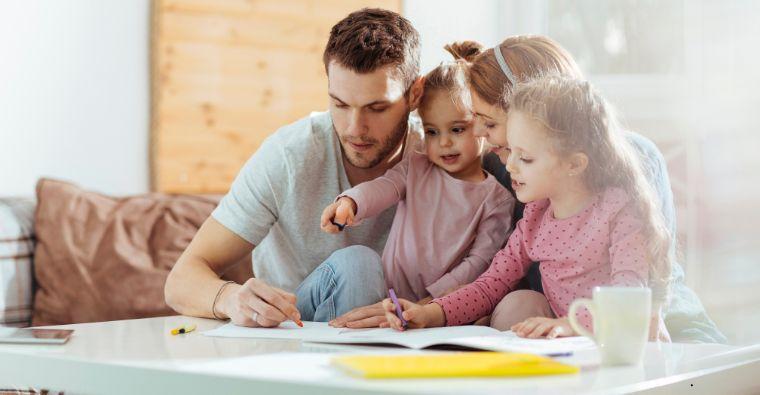Model Grateful Behavior
Children often learn by observing their parents. Show appreciation for the small things in life, whether it’s thanking someone for their help, expressing gratitude for a meal, or acknowledging the beauty of nature. By modeling gratitude, you set an example for your child to follow.
Practice Gratitude Daily
Incorporate gratitude into your family routine. Consider starting or ending each day by asking each family member to share one thing they are thankful for. This simple practice can help children recognize and appreciate the positives in their lives.
Create a Gratitude Journal
Encourage your child to keep a gratitude journal where they can write down things they are thankful for each day. This practice helps them reflect on their experiences and recognize the good in their lives.
Thank-You Notes
Teach your child the importance of expressing gratitude through thank-you notes. Encourage them to write notes for gifts received or acts of kindness. This practice not only teaches gratitude but also enhances their writing skills and thoughtfulness.
Volunteer Together
Engaging in community service or helping others in need can provide a tangible perspective on gratitude. Involve your child in volunteer activities, such as donating clothes or serving at a local shelter, to help them appreciate their own circumstances.
Highlight the Positive
When your child is upset or focusing on negatives, gently guide them to identify positive aspects of their situation. This could involve discussing the lessons learned from challenges or recognizing the support they have in their lives.
Encourage Acts of Kindness
Teach your child that gratitude can be expressed through actions. Encourage them to perform small acts of kindness for friends, family, or even strangers, such as helping a neighbor or sharing a toy. This reinforces the idea that gratitude is not only about feeling thankful but also about giving back.
Celebrate Achievements
Recognize and celebrate your child's accomplishments, both big and small. Encourage them to reflect on their hard work and the support they received along the way, helping them understand the role of gratitude in success.
Limit Materialism
In today’s consumer-driven culture, it’s easy for children to focus on what they lack rather than what they have. Set boundaries around material possessions and emphasize experiences and relationships over material goods.
Encourage Reflection
At the end of each week or month, take time to reflect as a family. Discuss memorable experiences and what each person is thankful for. This practice helps children recognize the abundance in their lives and fosters a mindset of gratitude.




